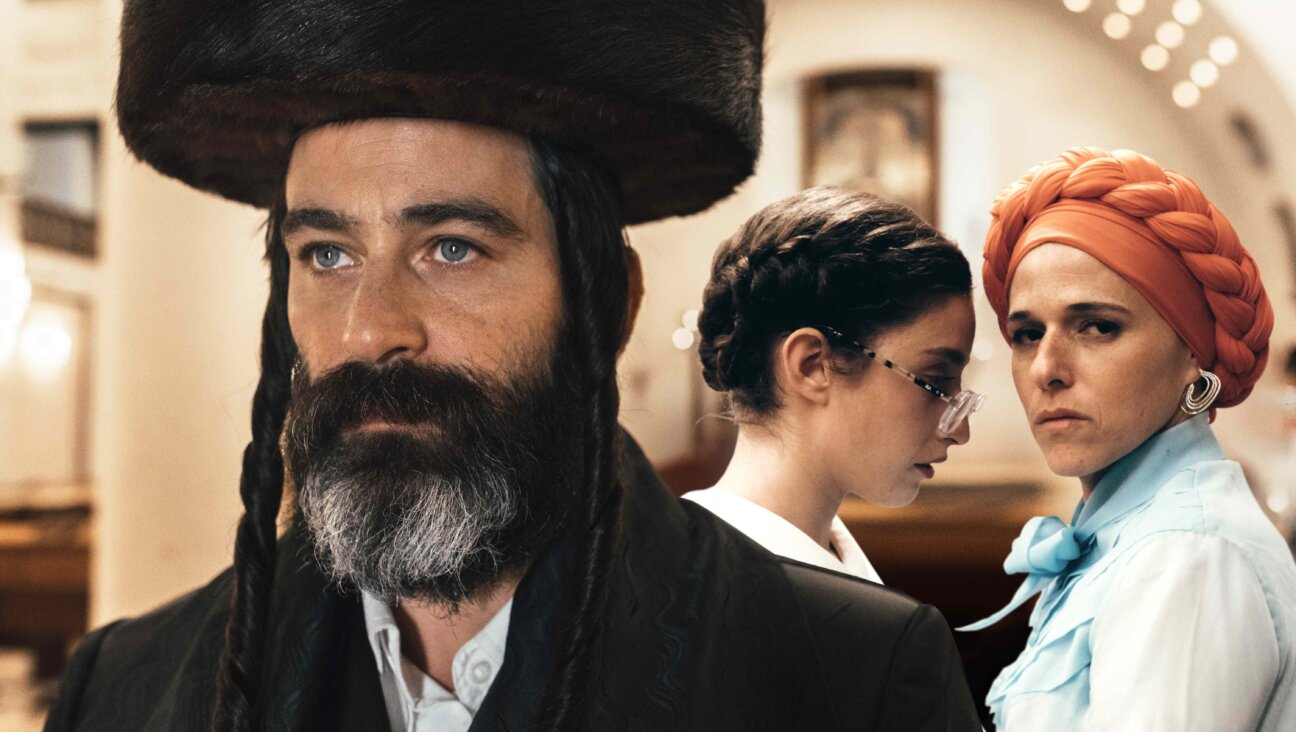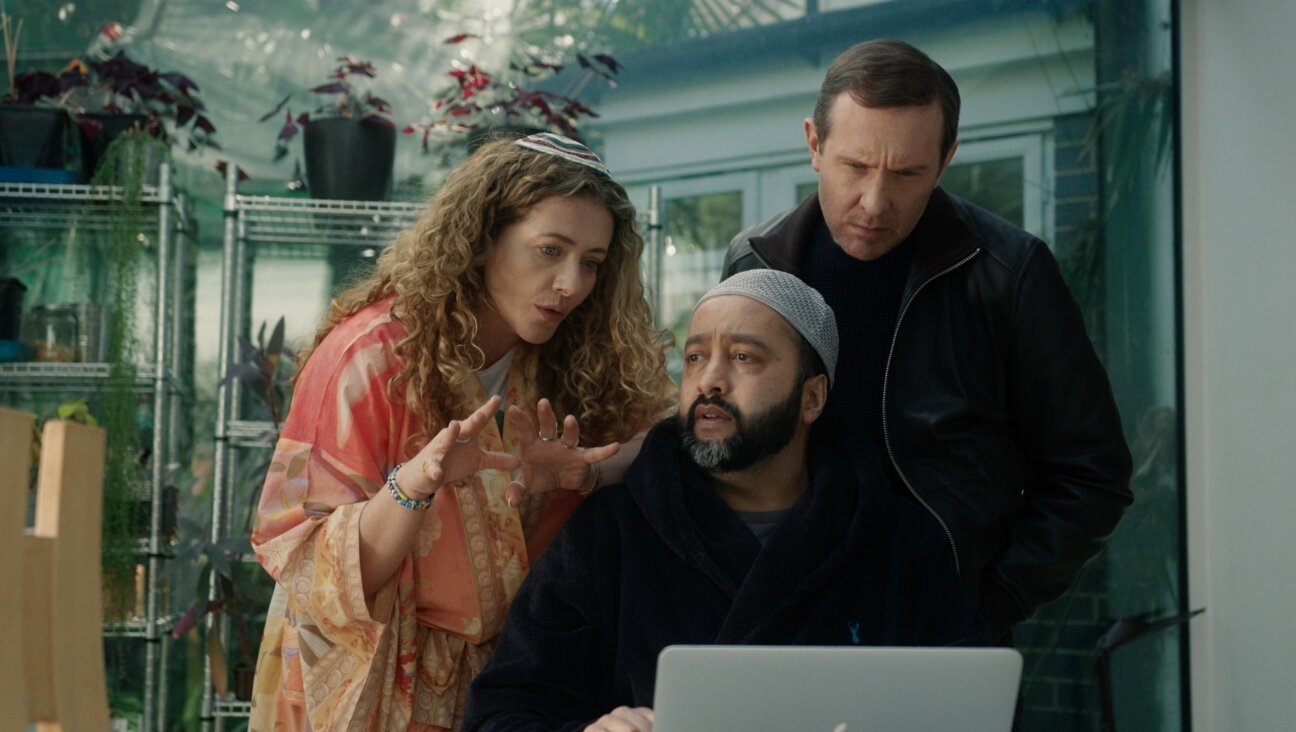Bette Midler Is Broadway’s Hottest Ticket — But Why Is ‘Hello, Dolly! Still A Thing?

Bette Midler in “Hello Dolly!”
Just because a musical was a hit with a long run, that doesn’t mean it’s a great show. And “Hello, Dolly!” is perhaps the proof point.
Its Broadway debut won 10 Tonys, played for nearly seven years, and was for a time the longest-running Broadway musical ever. It led to the movie, three revivals, and a retirement plan for Carol Channing. It features two classic songs, one classic and classically sexist one, and an insipid, incredible — that is, not credible — plot. It is not very good. Yet it is, somehow, a classic.
And now it’s back on Broadway, in a revival — the biggest-deal revival of the season — that amply shows off both its strengths and its weaknesses.
Well, hello, Bette.
The pull-out-the-stops production that opened at the Shubert Theatre comes to us on a Scott Rudin tsunami of publicity, all centered around its star, Bette Midler. (Well, almost all. This “Dolly” also managed to capsize the career of Times critic Charles Isherwood, another eddy of attention for it.) Here’s the good news: This is a show for a mugger, and Midler mugs par excellence.
She is a multitalented performer: a singer, an actress, a comedian, and, most of all, an entertainer. She grabs her audience, holds onto it, makes you love her. (She didn’t want to do it; Jack Paar had put her through it.) This goes a long way in portraying Dolly Levi, who we think of an as a matchmaker but is really less a Yenta than a mix of a tummler and a hondler, a woman with a quick retort for anything, who’s working an angle on everything: Dolly’s purse contains an endless supply of business cards, proclaiming her services for nearly every occasion.
What Midler is really doing is playing Midler. (Just as Channing, by the time I saw her in the 1995 revival, and presumably long before, was playing Channing.) There isn’t acting here so much as swanning, and the crowd loves it. The production is a vehicle for its star’s performance, and Midler does her job by being a star.
This makes sense, really, because “Hello, Dolly!” isn’t so much a musical as a vaudeville. Jerry Herman, who wrote the music and lyrics, grew up in and around the Borscht Belt hotels, knew from shtick. (The book, by Michael Stewart, is adapted from a Thornton Wilder play about a matchmaker who’s angling to make her own match.) This production only plays that up, from the red velvet act curtain ringed by Edison bulbs to the brassy overture (and when do you hear a full overture anymore?) to the rouge on Midler’s chipmunk cheeks, which renders them from the close seats almost tumorous.
Director Jerry Zaks is the master of the old-fashioned, big-deal, over-the-top Broadway extravaganza, and he keeps everything here in equally pronounced high spirits. The action doesn’t stop, the numbers keep coming, and everyone is performing at you — hard. Warren Carlyle’s choreography is expectedly high-stepping and joyous. Santo Loquasto’s sets offer an eye-popping Olde New York, including a New York Central train that locomotes across the stage. (Poor David Hyde Pierce, as Horace Vandergelder, the Yonkers half-millionaire Dolly has her eyes on, is outfitted so garishly he could wonder a few blocks uptown and sub in for Willy Wonka without a costume change.)
Hyde Pierce seems uncharacteristically eclipsed by Midler’s flamboyance; he’s a little bit lost behind his floppy moustache, and he’s ill-suited for the vaudevillian leg-quaking and cheek-puffing that’s called for. But Gavin Creel and Taylor Trensch are charming — and Creel especially faux-earnestly ingratiating — as the two Vandergelder clerks who sneak away from his shop for a day in the city and a chance at love. Kate Baldwin, as the shop owner Dolly was matching Vandergelder with before she decides to steal him for herself, is exuberant as ever, and occasionally threatens to outshine Midler. (But only occasionally: No one doubts who is the star.)
Still, it all remains, vaudevillianly, a lot of song-and-dance. There are great, classic musicals that are about things — “Gypsy,” for example, and “West Side Story” and “Oklahoma,” and there are also great, classic musicals that aren’t really about anything, like “Guys and Dolls” and “Anything Goes.” There are even great, classic Jerry Herman musicals that are about things, like “Mame” and, especially, “La Cage aux Folles.” But in all of those, there are if not stories you care about and are invested in than at least fascinating, watchable characters. (Or a Cole Porter score. Herman can write a simple, hummable show tune, but he ain’t Porter.) There may have been a “Hello, Dolly!” in which you cared about Dolly’s machinations, or at least felt her loneliness and yearning for a mate, or at least found her an engrossing character. But I haven’t seen one, and it’s not happening here.
That leaves us with a classic musical that isn’t so great, starring a great star who’s not really acting. It’s so nice to have her where she belongs.
Jesse Oxfeld has written about theater for New York Magazine and Town & Country.

I hope you appreciated this article. Before you go, I’d like to ask you to please support the Forward’s award-winning journalism this Passover.
In this age of misinformation, our work is needed like never before. We report on the news that matters most to American Jews, driven by truth, not ideology.
At a time when newsrooms are closing or cutting back, the Forward has removed its paywall. That means for the first time in our 126-year history, Forward journalism is free to everyone, everywhere. With an ongoing war, rising antisemitism, and a flood of disinformation that may affect the upcoming election, we believe that free and open access to Jewish journalism is imperative.
Readers like you make it all possible. Right now, we’re in the middle of our Passover Pledge Drive and we need 500 people to step up and make a gift to sustain our trustworthy, independent journalism.
Make a gift of any size and become a Forward member today. You’ll support our mission to tell the American Jewish story fully and fairly.
— Rachel Fishman Feddersen, Publisher and CEO
Join our mission to tell the Jewish story fully and fairly.
Our Goal: 500 gifts during our Passover Pledge Drive!
























